AI-enabled Acoustic Intelligence for Anti-Submarine Warfare
From detecting hidden threats to defending critical underwater infrastructure, Anti-Submarine Warfare (ASW) is a cornerstone of national security. AI...
6 min read
Mind Foundry
:
Updated on April 9, 2024
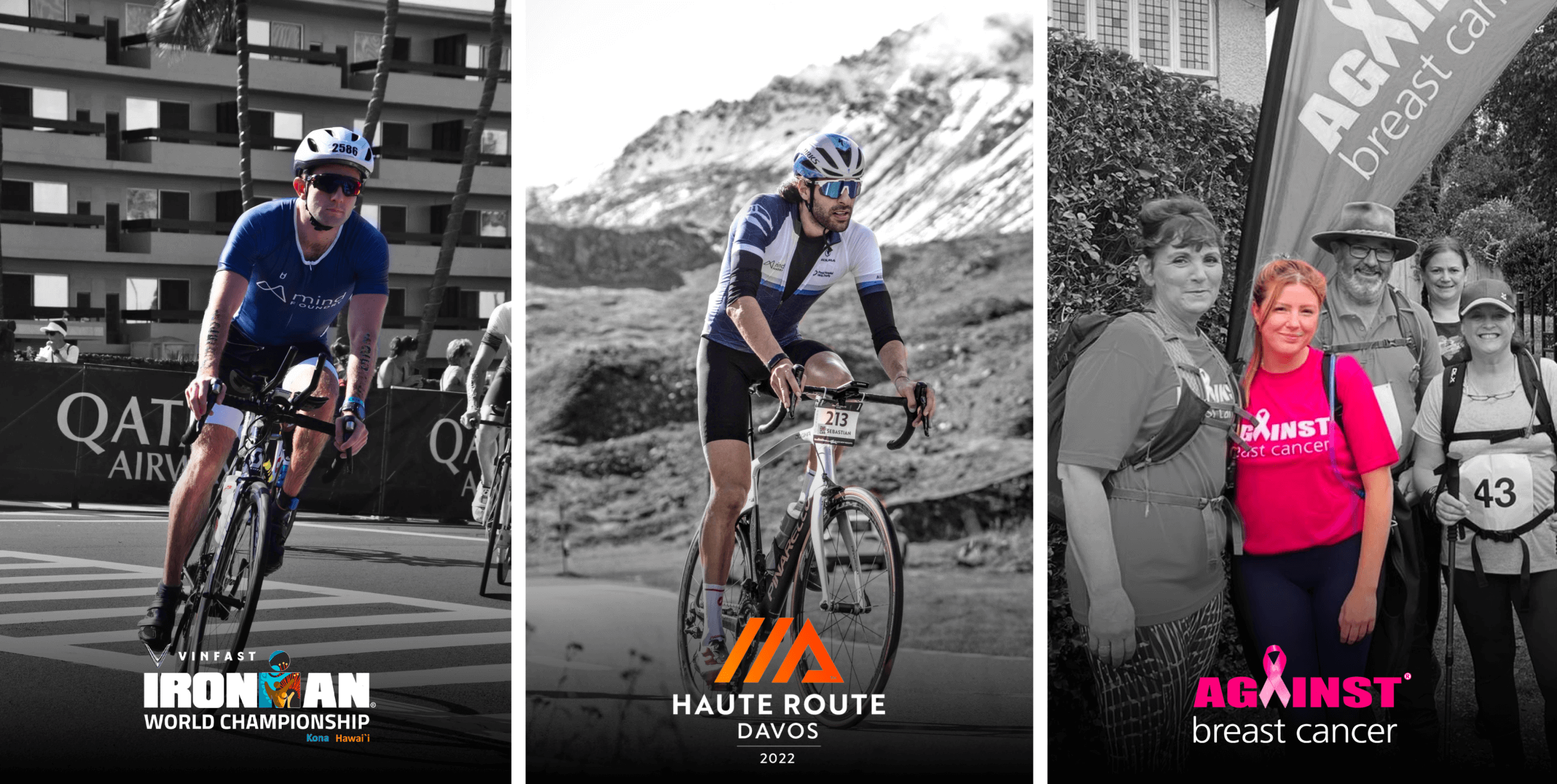
Change is hard. We're creatures of habit by nature, and despite our best efforts, we often struggle to avoid repeating entrenched behaviours that take up much of our time and energy. It’s altogether too easy to find yourself coasting along the same path with no signs of improvement on the horizon. However, it doesn’t have to be this way. Setting clearly defined goals, ones with simple metrics to measure completion and success, is one of the most effective ways to break the cycle and set yourself on the path to change. This idea forms the bedrock of our goals process at Mind Foundry, where our amazing team of scientists, engineers, and designers work tirelessly every day to push the boundaries of human-AI collaboration. In doing so, they prove that our value is not just in the technology we create but in the people that create it. To that end, we wanted to share the stories of 3 members of our team and how they used our SMART Goals framework to take on some exciting and inspiring challenges outside of work.
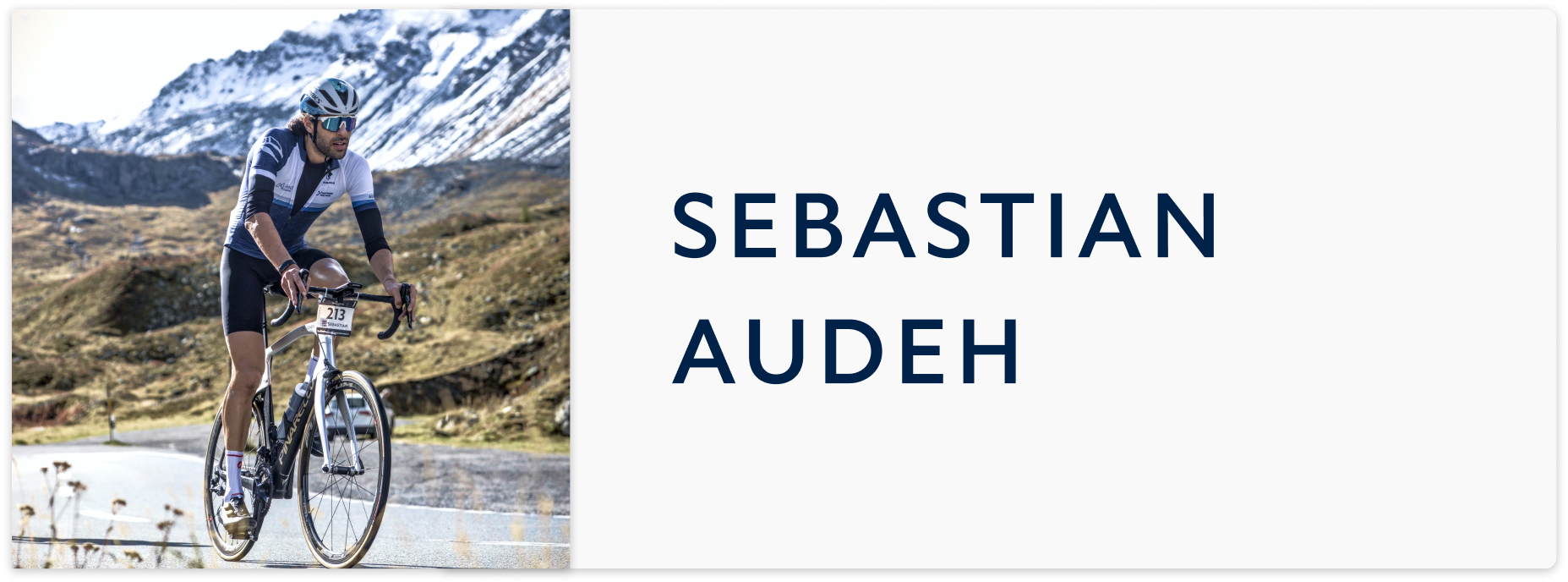
Seb is a Graphic Designer here at Mind Foundry, where he takes his ability to create unique works of art and applies it to our brand, content, and products. Outside of work, Seb has also been using his talents to paint some beautiful artwork to raise money for his local children’s hospital. As an avid cyclist and competitive racer, Seb’s SMART goal for 2022 involved combining his two passions and testing his ability on two wheels to raise money for this amazing cause. The challenge? The “hardest amateur bike race on earth”. The Haute Route Davos. A 3-day, 265-kilometre race at high altitude in the Swiss Alps. We asked Seb why he decided to take on this challenge and how it went.
What was your motivation for taking this challenge on?
S: I'm a huge supporter of the NHS and the incredible work all the staff do, but I am particularly passionate about child healthcare. I strongly believe every child deserves equal access to the best healthcare available, not just physical but mental healthcare as well. After speaking to my local child healthcare unit to understand what new treatments they would like to fund, I felt motivated to raise as much money for them as possible. I discovered that if I were able to raise £10,000, then it would help the unit fund new cutting-edge therapy treatments using VR headsets. However, I knew that in order to raise such an ambitious amount, I would need to embark on an equally ambitious challenge. Cue the Haute Route Davos and the hardest amateur bike race on Earth.
What was the most difficult part of the challenge?
S: The Haute Route's slogan is 'the hardest multi-day race in amateur cycling,' and I can confirm this is indeed accurate. The three-day back-to-back race was a collection of the most brutal and relentless climbs I have ever experienced. One of the hardest things was the high altitude's effect during and after each race.
Did you achieve your goal?
S: I ended up coming in 39th out of more than 300 riders… which I was pretty pleased with. However, more importantly, I managed to raise over £10,000 for the local children's unit.
What advice would you give to someone thinking about taking this challenge on?
S: I would say find something you are passionate about first, and then find something local to you that aligns with what you want to support. Be ambitious, be brave and remain consistent with your training.
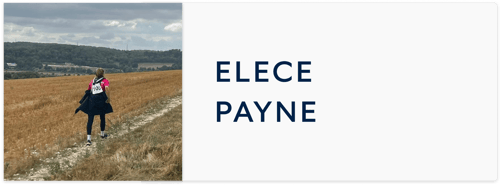
Elece is a Financial Analyst at Mind Foundry, where she helps to maintain financial order in what is a dynamic and fast-paced work environment. On the lookout for a challenge, in September 2022, Elece decided at short notice to set out on the Breast Walk Ever - a marathon walk along the banks of the River Thames. Here’s how the challenge went and why she chose to do it in the first place…
What was your reason for doing the walk?
E: My parents were already doing the walk and invited me along at the last minute. Who wouldn’t want to spend 10 hours with their parents? We walked for the cancer charity Against Breast Cancer, which is just such a fantastic charity.
What was the most difficult part of the challenge?
E: The last 5 miles!!! They were particularly mentally challenging. The group had become pretty flat, and I struggled to keep up my morale, but with a few old-school songs, we managed to keep going.
Did you achieve your goal?
E: I had only agreed to the walk a fortnight beforehand, so I set the fundraising target relatively low at £60. However, I absolutely smashed that target and the total amount raised was £404, which I was so thrilled about! We also managed to complete the walk in 8 1/2 hours!
What advice would you give to someone thinking about taking this challenge on?
E: No need to take snacks. The checkpoints had an abundance of cake, fruit, drinks, and other snacks. Enjoy it! I got to walk routes I probably would never have walked, so I got to see some beautiful countryside. I also learned more about my parents and what their lives were like growing up, and in seeing them tackle the last 5 miles, I saw a side to them I hadn’t seen before. I’m grateful I have that memory of walking a marathon with them.
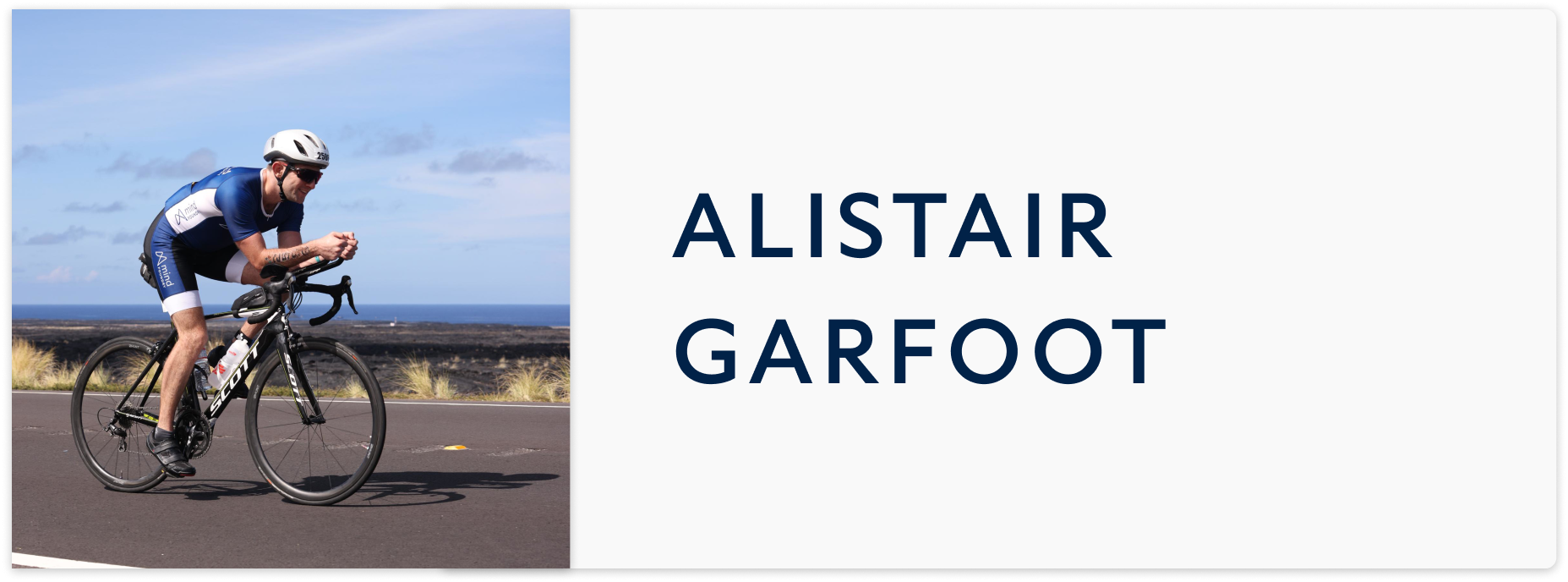
Alistair Garfoot is Mind Foundry's Director of Intelligence Architecture. His technical background helps our team bridge the gap between a customer's problem and the technical solution best suited to solve it. Already a keen cyclist but looking to set a SMART goal that would genuinely push him out of his comfort zone, Alistair decided in 2022 to challenge himself to complete an Ironman - one of the most gruelling physical tests out there. This SMART goal would require precise planning, dedication, and ambition. We asked Alistair how he got on out in Finland last year.
What made you decide to do an Iron Man?
A: One of my New Year’s resolutions was to complete an Ironman Triathlon. This involves swimming 2.4 miles, cycling 112 miles, and running a marathon (26 miles). With my only real experience of any of these disciplines before this year being two half-marathons, it was a significant goal. Still, I find it hugely satisfying to set difficult challenges and see how far I can push myself. Proving that I could do it was the main driver in motivating me to give it a shot.
What was the most difficult part of the challenge?
A: On race day, I never doubted I’d finish, so perhaps surprisingly, this wasn’t the most difficult bit. I found the adrenaline, the supporting crowds and doing the race very enjoyable. This was only because I’d put the time in for training, which was actually the most challenging part. I trained six days a week for the 8-10 months leading up to the race, with most days near the end having two sessions, which required me to make sacrifices around work, social life and sleep. This was a long grind, and there were some pretty tough compromises.
Did you achieve what you hoped to achieve?
A: I was ecstatic to achieve my moonshot goal of finishing in under 12 hours (11:32 to be exact) but was completely blown away when I found I’d qualified for the world championship in Hawai’i. Less than two months after the first Ironman, I did the race again in Hawai’i in October, which was a completely different ball game with scorching temperatures and heavy winds. I got pretty beaten up there, but I was happy just to complete that race!
What advice would you give to someone thinking about attempting an Iron Man?
A: On the one hand, “just do it” - I truly believe that anybody has the ability to do something like this if they’re prepared to put in the time. With that being said, the sacrifices are not insignificant, so you really have to be clear about your “why” before you start so that you can use it to motivate yourself when you really don’t feel like training. Equally, if you can find someone who’s done something similar or even is training at the same time as you, this is a huge help.
At Mind Foundry, our performance review cycle takes place every six months, and setting goals is an integral part of this process. However, it’s not simply about measuring the completion of tasks or meeting deadlines. Done well, setting goals can drive one’s career forward while also helping drive the company’s growth. If both these things can be achieved, the benefits are there for all to see. In order to do this, we make sure that they are S.M.A.R.T.

The way in which we work as a society has changed dramatically in recent years, catalysed in no small part by the COVID-19 pandemic. Although our attitude used to lean towards “In the office all the time”, we now offer full flexibility when it comes to being in the office, meaning you can work entirely remotely, from the office, or something in between. One thing that makes this work is having clearly defined core working hours, the hours during which we schedule the bulk of our meetings and events. For us, this is the time between 10 am and 3 pm. Many members of the Mind Foundry team are parents with young children, and many of us take on commitments outside work that require some flexibility. These core working hours allow our personal and working lives to fit together seamlessly; indeed, in Alistair’s case, it allowed him to train for two Ironman races whilst still managing all his Mind Foundry work.
The three individuals in this piece all embody the characteristics of what it means to work at Mind Foundry. Our company mission is to bring humans and AI together to solve the world’s most important problems. It’s an ambitious mission and one that requires equally ambitious people to help us achieve it. We are fortunate, therefore, to have built a team of enterprising, intelligent, determined, and selfless individuals like Elece, Seb, and Alistair who are committed not just to helping us fulfil our mission but to taking on meaningful personal challenges that raise awareness for important causes and inspire us to rethink what is humanly possible.
If you believe you have the skills and personality to help us on our journey, visit our careers page to see if there is a role at Mind Foundry for you.
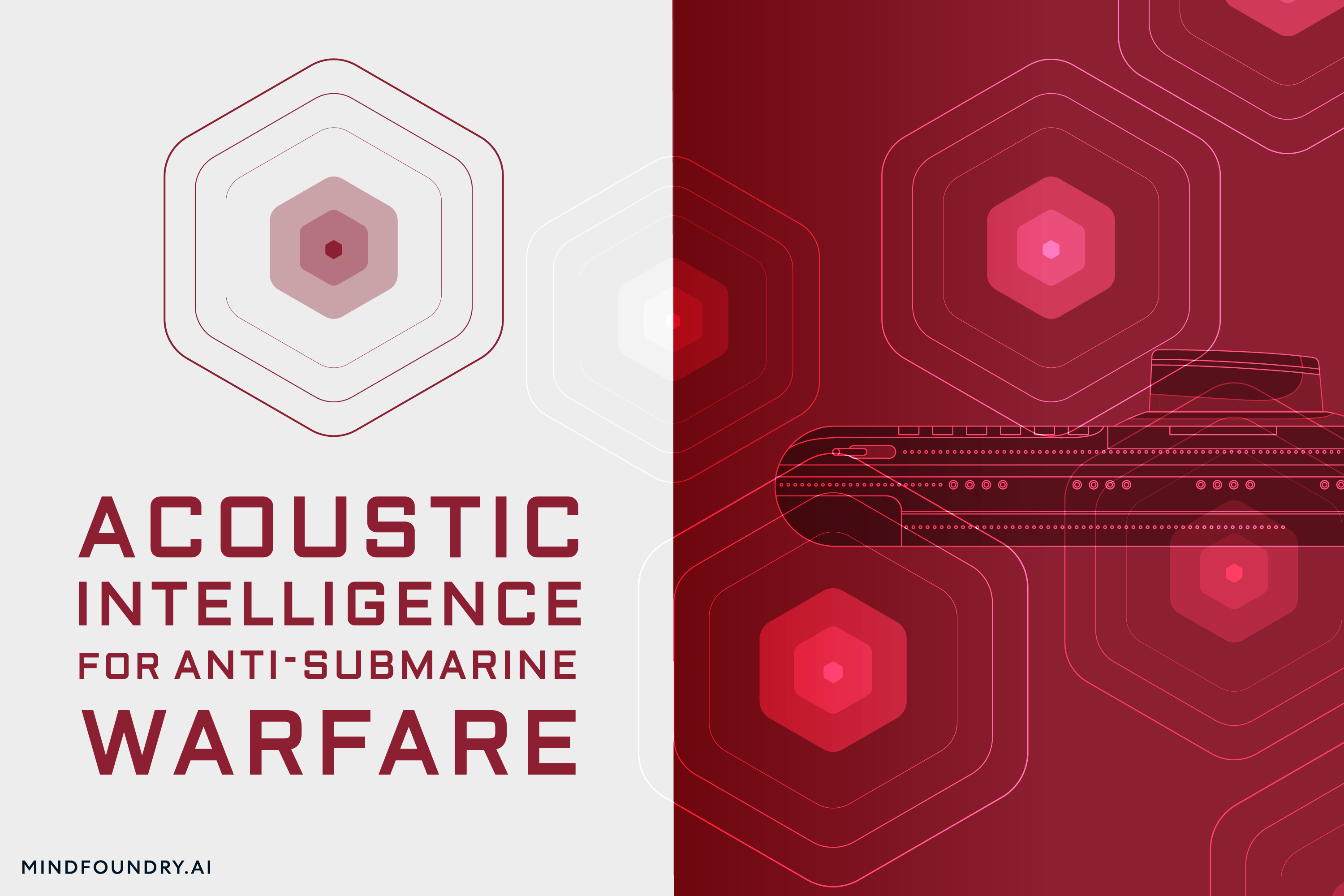
From detecting hidden threats to defending critical underwater infrastructure, Anti-Submarine Warfare (ASW) is a cornerstone of national security. AI...

The UK-USA Technology Prosperity Deal sees overseas organisations pledging £31 billion of investment into UK AI infrastructure. As AI investment...
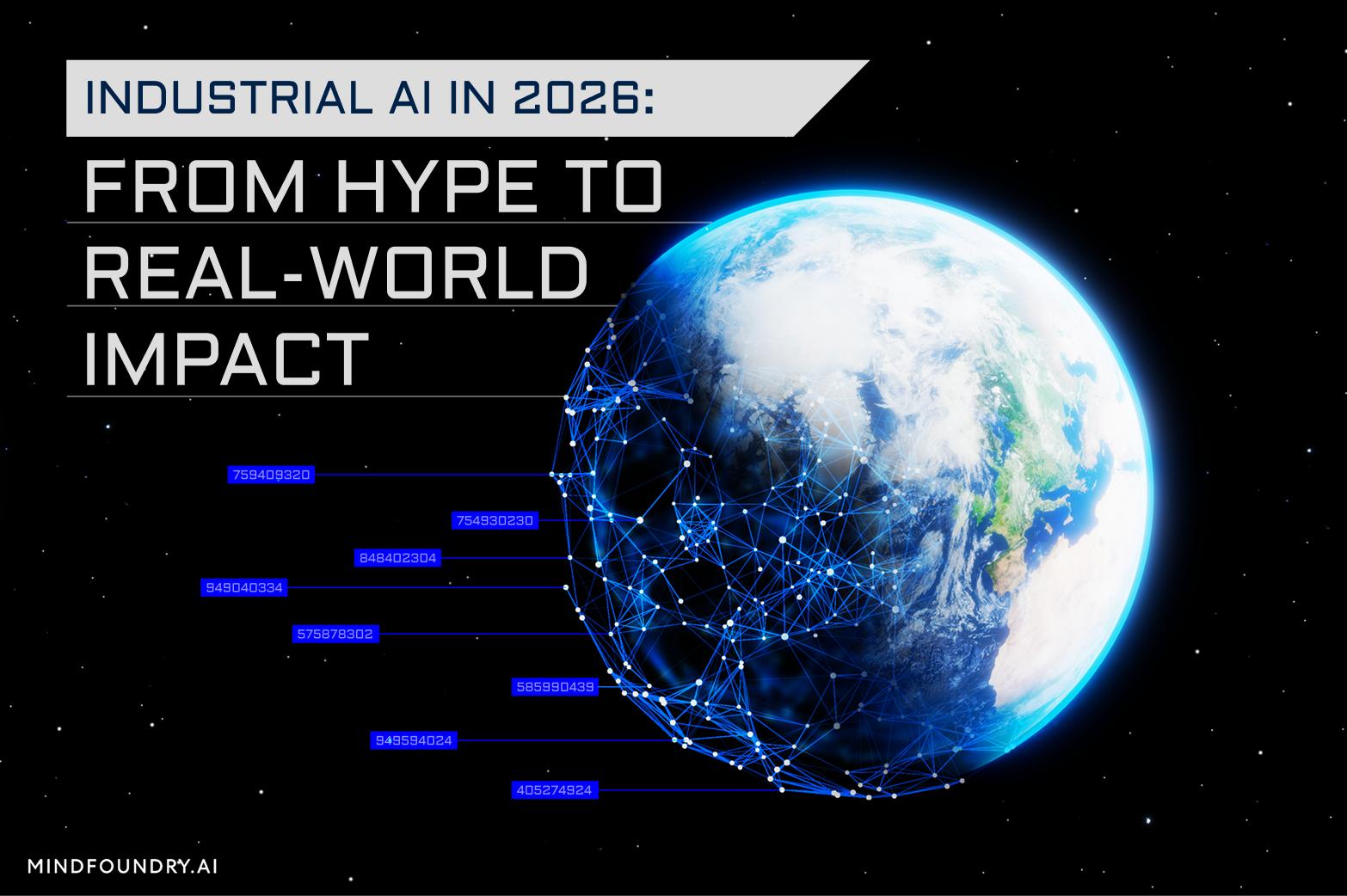
Industrial AI is increasingly coming to the fore in physical industries, but achieving measurable real-world impact requires careful consideration...